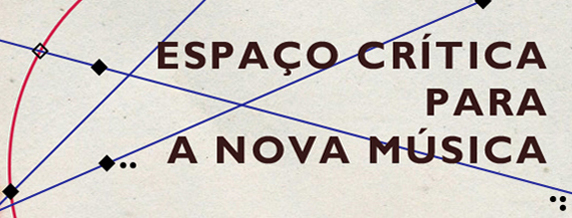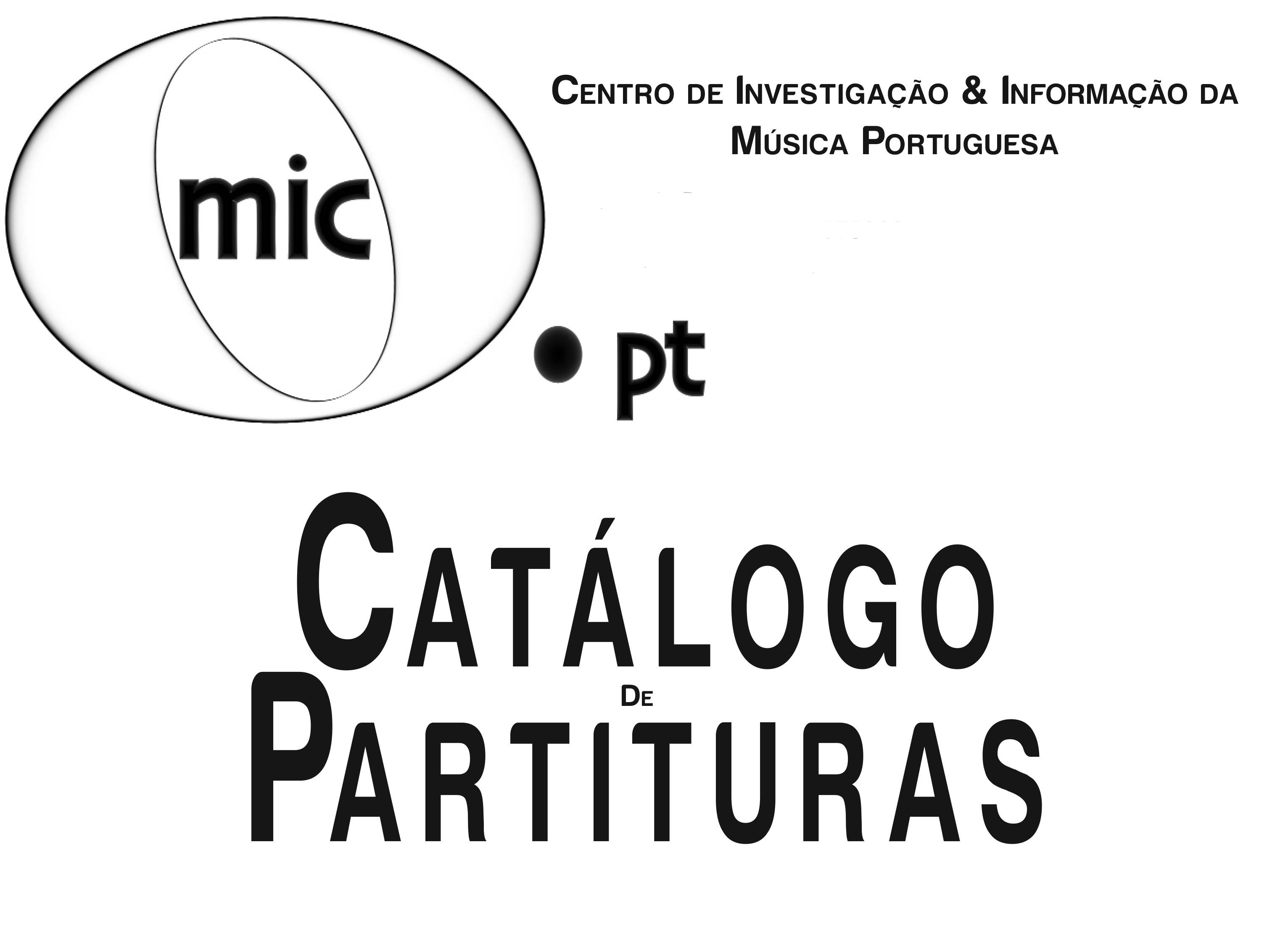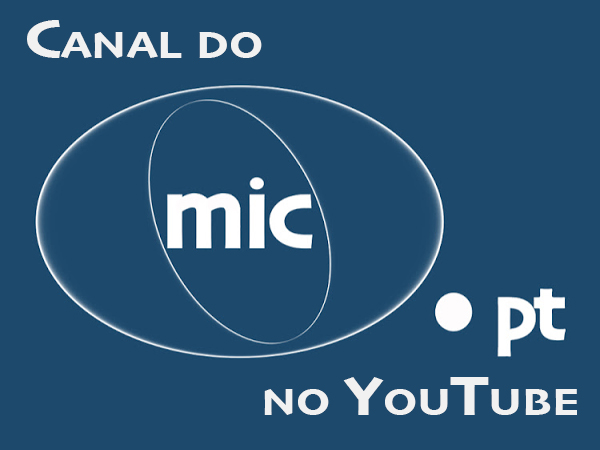Questionnaire/Interview
Part 1 - Roots and Education
How did music begin for you? Where do you identify your music roots? Which paths led you to composition?
António Chagas Rosa: I wasn’t born inside a musical family, although my parents did like music and they took me to concerts. I think that my fascination with the so-called classical music began at the age of 10, when I was accompanying on television the Young People’s Concerts conducted and commented by Leonard Bernstein.
Which moments from your music education do you find the most important?
AChR: I remember the free composition lessons with Constança Capdeville, which I had at the National Conservatoire in Lisbon. Constança had an enormous influence on me when it comes to creation. I should also emphasize the private piano lessons with Madalena Sá Pessoa, which I had during the first five or six years of my education. I always recall this magnificent pianist as my “musical mum”. And still… after graduation, the piano lessons with Olga Prats were fundamental for my comprehension of the score and sound.
Part 2 - Influences and Aesthetics
What kind of references do you assume in your compositional practice? Which works from the history of music and the present do you find the most influential?
AChR: I experienced a first fascination with the works from the middle period of the Second Viennese School, the ones composed in the context of the so-called “free atonality”. Here I should mention the Three Pieces for Orchestra by Alban Berg and the whole Webern from this phase: a truly intoxicating music for me. My musical taste was marked profoundly with my piano practice, as well as during my work as an orchestra pianist and opera répétiteur. The list of my preferences is immense: I know where to begin but I have no idea where to end…
Nevertheless if I were to go to a desert island I would take with me Schubert’s String Quintet in C Major, Verdi’s Otello and the opus’ 5, 6 and 10 by Webern.
The dichotomy “occupation – vocation” can define the artistic/professional approach of a composer. Where on the scale between the emotional (inspiration and vocation) and the pragmatic/rational (calculation and occupation), can you identify your manner of working and your stance as composer?
AChR: As composer I like the daily writing routine within long periods, something that always seems deprived from inspiration for someone from outside. It is obvious that the vision precedes the work, but it is ultimately the working process that brings my music to life. I don’t know if I have a composer’s attitude, or rather perhaps I am more of a craftsman.
Music, due to its nature, is essentially incapable of expressing anything – emotion, mental attitude, psychological disposition or any natural phenomenon. What music expresses is only an illusion or metaphor, and not reality. Do you agree or disagree with this statement? In this context how could you define your aesthetic stance?
AChR: It would be necessary to define the nature of music before responding to this challenge; it would also be necessary to examine if an illusion doesn’t have an emotional expression. I am very pragmatic when it comes to the semantic content with which I deal. A question still without any answer is whether music can imitate nature whatsoever, just as Aristotle articulated it in his Poetics. On the other hand Kant remits music to the category of sublime, liberating us from the problem of explaining it. I end up agreeing with Pascal Quignard, who in his Speculative Rhetoric proposes the existence of two lines in western culture: the one of the philosophers (which cultivates abstraction) and the one of the orators (which cultivates the image). The composers obviously belong to the second one. In my music there are stories that are narrated through sound images and these are the composers’ tools. Thus, I assume that I construct a discourse from images, a kind of “oratio” of sounds
Are there any extra-musical sources, which influence your work significantly?
AChR: I am not able to point out any event, which could have influence on what is happening during the process of writing music. I feel that it expresses something of its own. When I work with vocal works there is obviously a text serving as extra-musical nourishment, but only at the starting point. Perhaps the main extra-musical influences on my work come from the cinema by Fellini, Pasolini or Kurosawa. Pasolini’s way of editing is particularly dear to me.
In the context of western art music do you feel proximity to any past or present aesthetics or composition school?
AChR: The chief composers from the 20th century undergo mutations and it is difficult to identify any of them as having a unique aesthetics. They are all Picassos with their blue and pink phases. I concentrate more on works, and in order not to repeat Webern: Pelléas et Mélisande by Debussy; The Rite of Spring by Stravinsky; Seven Deadly Sins by Kurt Weil; the Chamber Concerto by Ligeti. Going backwards in time, I would like to know how to write music with the same consistency as a Marin Marais or Chopin.
Are there any non-western culture influences in your music?
AChR: I have already written a considerable amount of vocal music based on oriental poems, at the request of the entity that made the commission. Despite the high quality and the beauty of the texts, I feel that my composing process and my cultural heritage are permeated with the western logic.
How do you understand “avant-garde”? In your opinion what nowadays can be considered as avant-garde?
AChR: Presently, and on the contrary to what I thought some 15 years ago, the concept of avant-garde doesn’t tell me anything. Perhaps an avant-garde artist is the one capable of discovering a new time within an old one, although this expression doesn’t have great value. Yet it is an ephemeral gesture, just as a wave dissolving on a beach.
Part 3 - Language and Compositional Practice
How do you characterize your music language when taking into account the techniques developed in Composition in the 20th and 21st Centuries? Do you have any musical genre/style of preference?
AChR: I have difficulty in describing my music, but there are aspects, with which I am concerned recurrently in terms of musical language: the harmonic plan and the search for relations between chords; tensions between consonance and dissonance; timbre as expression of the music idea; the infinite research on the possibilities of every instrument.
Could you describe the process behind your compositional practice? Do you compose from an embryo-idea or after having elaborated a global form of music?
AChR: I think that, in order to give my answer, I will take advantage of a part of the question: I compose from an embryo-idea. Inside the general form one can detect the presence of the “molecular” forms.
In the context of your compositional practice could you define the connection (or opposition) between calculating/reasoning/scientific processes (for example linked to acoustic phenomena) and the more emotional side (the so-called “creative impulses”)?
AChR: A score in its final version, results from a development, which passes through various stages. Technology, reasoning and emotion are interconnected, as far as music is concerned. Yet these ingredients are exceeded with something that transcends the describable processes and that can, a posteriori, surprise the composer. There is always something inexplicable happening in a state of hyper intelligence. The more you learn the less is possible to explain.
What is your relation with new technologies (for example with computer means), and how do they influence your way of composing and your music language?
AChR: I have never embraced electroacoustic means in my composition. Yet I believe that the musical discourse, though without the referred means, can assume contours of great sophistication and can be innovative.
What is the importance of timbre and spatiality in your music?
AChR: I am not particularly interested in spatiality, apart from my concern with a good acoustic of the concert hall. When it comes to the timbre, I have already referred, that it is one of my main pursuits.
What is the importance of experimentation in your music?
AChR: I believe that I am always experimenting; yet it doesn’t imply any kind of attachment to any aesthetics or clubs. What pleases me is the notion of commencing, without knowing where this path shall lead me.
Which works from your catalogue do you consider turning points in your career as composer?
AChR: I can indicate the song cycle Songs of the Beginning, the piece for chamber orchestra Moh, and the music tale As Feiticeiras. These were moments when I contemplated on what I created, without the notion whether they were things of my own authorship.
Part 4 - Portuguese Music
What do you think of the present situation in Portuguese music? What distinguishes Portuguese music on the international panorama?
AChR: I think that there is no such a thing as “Portuguese music”, taking into consideration the integration of Portuguese composers within a more and more globalised context. Yes, there are Portuguese composers and their respective concerns. There are equally Portuguese composers who have an international recognition, and this is due to their own artistic merit. These are difficult times for everything that doesn’t represent the taste of large audiences, within the logic of the majority of programmers. Yet this hard and awkward evolution has something comprehensible, given the stance of many composers from the last decades, who entertained themselves composing anti-performable and anti-public music, obstructed behind some articles, which they read. Nowadays there is less space to be “anti”, with the regression of the so-called “social state”, what hasn’t been and exclusively Portuguese phenomenon (where in fact this social state has never had the same expression as in such countries as France or the Netherlands).
In your opinion, is there any transversal aspect in Portuguese contemporary music?
AChR: I couldn’t say which.
How could you define the paper of composers nowadays?
AChR: The composers, who I know give lessons wherever it is possible and they write at night or during weekends. Without being ironic, I think that their role is similar to the one of athletes who run because they enjoy it.
According to your experience what are the differences between the music mean in Portugal and in other parts of the world?
AChR: Well there are parts of the world, which are a lot worse than Portugal! Except that we have always compared ourselves with the ones that have always been in front of us in terms of culture and economy. In Portugal, the political authority continues to consider that spending money on culture means yet another expense, and not investment. The major Portuguese problem is that of never having succeeded in creating an elite, which would give value and continually support art music, beyond what it represents in terms of social events. I am afraid that I am not saying anything new: in our country it is never wrong to say that one doesn’t understand anything of music. Despite the efforts, which the Portuguese kings made since the 16th century in order to create a composer’s school, for example, by means of sending scholars to Italy, the bourgeois power from the last century and a half confuses pathetic with stupid, as it is described in Os Maias (The Maias) by Eça de Queirós. Presently, after an incredible development in musical education in Portugal during the last 20 years, we have excellent young musicians who are active around Europe. In Switzerland this has already been considered as a phenomenon. Yet in the Portuguese day-to-day life this reality is almost unknown. There is oil in the backyard and no one is aware of it. There is much more to be said…
Part 5 - Present and Future
What are your current and future projects? Could you highlight one of your more recent works, presenting the context of its creation and also the particularities of the language and employed techniques?
AChR: Presently I am working on a piece for the choir Les Éléments de Toulouse. It is an ensemble of 18 solo voices, for which I am experimenting with spatial techniques (for the first time), involving sound rotation around the altar of the Toulouse Cathedral.
How do you see the future of art music?
AChR: Perhaps the future will renew a concept of composition, which isn’t nourished with a permanent hostility towards the audience not familiar with contemporary music; which would recover the function of pleasure in new composition, yet without simplification or degradation in the eyes of peers; and which would meet a balance between particular sponsors, personal initiative and the state support. Johann Sebastian Bach wrote for the pleasure of his sponsors and he was paid for it. Yet he never ceased to be in front of all of his fellow craftsmen, when it comes to technique and ideas. Not ceasing to innovate, he didn’t loosen his visceral need to create beauty. And for me, creating beauty is the most important thing in life.
António Chagas Rosa's official website: www.chagasrosa.com
António Chagas Rosa, February 2015
© MIC.PT





